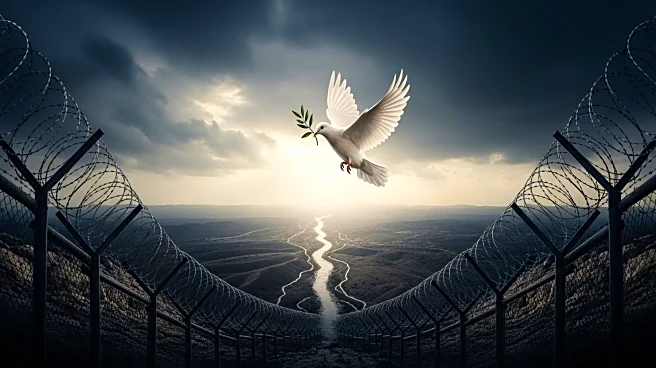What's Happening?
President Trump's recent proposal for a phased ceasefire in Gaza has been conditionally accepted by both Israeli Prime Minister Benjamin Netanyahu and Hamas representatives. The plan includes international administration of Gaza and Arab recognition of Israel, tied to progress toward Palestinian self-governance and statehood. While the proposal has been embraced by regional partners, skeptics point out the challenges in implementation, such as troop withdrawal and disarmament. The plan's emergence has reignited discussions on diplomacy and regional cooperation, offering a glimmer of hope for peace.
Why It's Important?
The proposal represents a significant diplomatic effort to resolve a long-standing conflict that has caused immense suffering on both sides. If successful, it could lead to a historic peace agreement, improving security and stability in the region. However, the complexities of the plan and potential opposition from hardliners on both sides pose significant challenges. The involvement of President Trump as a peacemaker highlights the US's pivotal role in Middle Eastern diplomacy and the potential for renewed American influence in the region.
Beyond the Headlines
The proposal's success hinges on overcoming deep-seated mistrust and addressing the humanitarian needs of Gaza's population. The plan's focus on Palestinian self-governance and statehood could shift the dynamics of the Israeli-Palestinian conflict, potentially leading to broader regional cooperation. However, the risk of derailment by extremist factions remains high, underscoring the fragile nature of peace efforts in the region.











